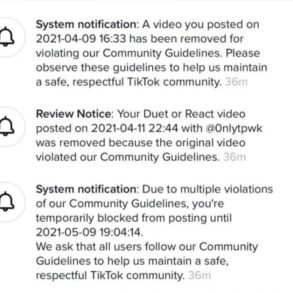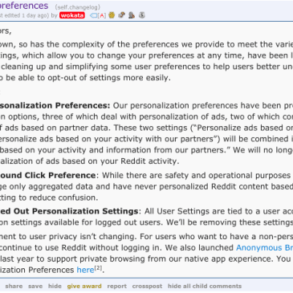Meta bans RT and other Russian state media outlets for foreign interference activity, marking a significant step in the fight against disinformation. This action highlights the growing concern over the spread of propaganda and the manipulation of public opinion through state-sponsored media outlets. The move signals a shift in how social media platforms are addressing foreign interference, and raises questions about the future of online information sharing.
This analysis delves into the background of Russian state media’s activities, Meta’s rationale for the bans, and the resulting impact on public discourse. It also examines alternative information sources, strategies for discerning credible news, and the broader legal and political implications. The analysis concludes with a look at potential future trends and predictions.
Background of Russian State Media Interference
Russian state-funded media outlets have a long history of engaging in activities aimed at influencing foreign audiences and undermining democratic processes. These efforts have evolved from traditional propaganda techniques to sophisticated disinformation campaigns, employing various tactics and strategies to achieve their goals. This evolution has coincided with the rise of the internet and social media, providing new avenues for disseminating information and manipulating public opinion.The overarching goal of these activities is to promote narratives favorable to the Russian government, sow discord within target societies, and ultimately, influence political outcomes.
This involves disseminating false or misleading information, creating echo chambers, and exploiting existing social divisions. These tactics are designed to erode public trust in legitimate sources of information and create confusion and distrust in democratic institutions.
Historical Overview of Russian State-Funded Media Activities
Russian state-controlled media outlets, including RT and Sputnik, have been active globally for many years. Their activities have been documented and analyzed by numerous organizations, highlighting the consistent pattern of disinformation and propaganda.
Evolution of Tactics and Strategies
Initially, Russian state-funded media outlets relied on traditional broadcasting methods and print publications. However, with the rise of the internet and social media, they adapted their strategies, utilizing these platforms to disseminate information more effectively. This evolution has seen an increase in the use of social media bots, trolls, and coordinated campaigns to spread disinformation and manipulate public opinion.
The use of targeted advertising and the creation of fake news websites further exemplifies this adaptation.
Documented Instances of Foreign Interference
Numerous instances of foreign interference by Russian state-funded media outlets have been documented. These instances demonstrate a pattern of disseminating disinformation, creating false narratives, and attempting to influence political outcomes in various countries.
| Date | Event | Location | Description |
|---|---|---|---|
| 2014 | Ukraine Crisis | Ukraine, Russia | Russian state media outlets disseminated false information about the Ukrainian government and its actions, aiming to discredit the Ukrainian government and promote pro-Russian narratives. This was part of a larger disinformation campaign that attempted to influence public opinion on the conflict. |
| 2016 | US Presidential Election | United States | RT and Sputnik were accused of coordinating with Russian operatives to spread disinformation on social media and online platforms. The goal was to sow discord and undermine public confidence in the election process. |
| 2022 | Invasion of Ukraine | Ukraine, Russia, and globally | Russian state media outlets have been accused of disseminating propaganda to justify the invasion of Ukraine and portray the Russian government’s actions in a positive light, while simultaneously demonizing the Ukrainian government and people. This includes disseminating false information about Ukrainian military capabilities and civilian casualties. |
Meta’s Actions and Reasoning
Meta’s decision to ban Russian state-controlled media outlets reflects its commitment to combating foreign interference in democratic processes. This action is part of a broader strategy to protect its platform from being used for activities that undermine public discourse and potentially manipulate public opinion. The company’s rationale is multifaceted, encompassing both ethical considerations and legal obligations.Meta recognizes the significant role social media plays in disseminating information, particularly in times of political tension.
This awareness fuels its responsibility to prevent the spread of disinformation and propaganda, especially when it originates from state-sponsored actors. This proactive approach is essential for maintaining the integrity and reliability of its platform.
Meta’s Rationale for Bans
Meta’s rationale for banning Russian state media outlets rests on the principle of preventing foreign interference in democratic processes. The company identifies a clear risk that these outlets could be used to spread misinformation, propaganda, and disinformation, thereby manipulating public discourse. This potential harm is amplified by the outlets’ close ties to the Russian government, which further strengthens their ability to influence public perception.
Specific Policies and Procedures
Meta employs a multifaceted approach to identify and address foreign interference. This includes advanced algorithms and human review processes to detect and flag potentially harmful content. These methods are designed to proactively identify and flag content that aligns with known patterns of Russian state-sponsored disinformation campaigns. This proactive approach, combined with user reports, allows Meta to address potential interference rapidly and effectively.
Evidence and Metrics Used to Justify Bans
Meta utilizes a range of evidence to substantiate its decisions regarding Russian state media bans. This includes analysis of content, user engagement patterns, and geolocation data. The company also leverages information from independent researchers and international organizations to assess the potential impact of specific content. For example, they examine the distribution patterns of content originating from these media outlets to ascertain the scope of the potential influence on its platform’s users.
This data, combined with historical patterns of disinformation campaigns, forms the basis for Meta’s decisions.
Alignment with International Norms and Legal Frameworks
Meta’s actions align with international norms and legal frameworks aimed at countering foreign interference. The company adheres to principles of transparency and accountability, which are crucial for maintaining public trust and confidence in its platform. Its policies reflect an understanding of the need for platforms to actively mitigate the spread of disinformation and propaganda, especially when it stems from state actors.
Impact on Public Discourse and Information

The recent bans on Russian state-affiliated media outlets, like RT and Sputnik, have profoundly altered the landscape of public discourse and information sharing. These actions aimed to mitigate the influence of foreign interference, but their effect on the public’s access to diverse perspectives and the overall nature of news consumption warrants careful consideration. The consequences ripple through various aspects of information ecosystems, demanding a nuanced understanding.The bans represent a significant intervention in the free flow of information.
They limit the reach of sources that often present alternative narratives and interpretations of events. This shift in availability necessitates a critical examination of the impact on public perception and the ongoing discussion of global issues.
Meta’s ban on RT and other Russian state-controlled media outlets for meddling in foreign affairs is a significant move. It’s interesting to consider how these actions intersect with updates to user interfaces, like the recent Microsoft Outlook design update for iOS iPhones. This update highlights the ongoing evolution of digital platforms. Ultimately, these kinds of restrictions on foreign interference are important steps in maintaining a healthy online environment.
Potential Consequences of Bans on Public Discourse
Restricting access to Russian state-funded media outlets impacts the public’s access to information from diverse perspectives. It can potentially reduce the availability of alternative viewpoints, potentially leading to a more homogenous media landscape. This could influence public opinion formation, as access to multiple interpretations is crucial for a comprehensive understanding of events. The impact is not limited to news consumption; it affects the broader public discourse, shaping debates and discussions around international affairs.
Impact on News Consumption and Public Perception
The removal of Russian state media outlets from the information landscape can alter public perception. Audiences accustomed to consuming news from these outlets may seek alternative sources, which can result in shifts in their information diet. This can influence how people perceive events, potentially narrowing the range of viewpoints considered legitimate. The potential for a homogenization of information sources is undeniable.
Analysis of the Shift in Information Sources
The public may shift their information sources to other outlets, potentially leading to reliance on a limited set of viewpoints. This reliance on a smaller pool of news sources could narrow the spectrum of opinions and perspectives available for public consumption. Consequently, this shift can affect the range of opinions discussed in public forums and discussions.
Access to Diverse Perspectives
The loss of access to Russian state-funded media outlets could limit the public’s exposure to perspectives often overlooked by mainstream media. This reduction in exposure to different viewpoints might potentially lead to a less nuanced understanding of global events. The absence of these sources may result in a lack of diverse perspectives in public discourse.
Comparison of Pre- and Post-Ban Information Availability and Access
| Characteristic | Pre-Ban | Post-Ban |
|---|---|---|
| Information Sources | Diverse range, including Russian state media | Reduced range, potentially focusing on mainstream outlets |
| Alternative Perspectives | Exposure to alternative narratives and interpretations | Potentially reduced exposure to alternative viewpoints |
| News Consumption | Audiences had access to a wider array of information | Audiences may focus on fewer, potentially more aligned, sources |
| Public Perception | Potentially influenced by multiple interpretations of events | Potentially influenced by a narrower range of interpretations |
| Public Discourse | More varied discussion and debate | Potential for more homogenous discourse |
Alternatives and Countermeasures

The ban of Russian state-affiliated media outlets, like RT and Sputnik, has undeniably impacted the information landscape. This disruption, however, has also fostered a surge in alternative news sources and heightened the need for media literacy skills. Understanding how to navigate the complexities of online information is crucial in this new environment.The shift away from state-controlled sources has created an opportunity for independent and diverse perspectives to emerge.
Meta’s recent ban on RT and other Russian state media outlets for their foreign interference activities is a significant move. While this news is important, I’ve been diving deep into the new Nvidia Shield Android Oreo 8 update, specifically its new interface here. The updated design is a welcome change, but the bigger picture remains the same: Meta’s actions are crucial in combating disinformation and protecting democratic processes.
This presents a double-edged sword, requiring greater vigilance in discerning credible information from misinformation.
Alternative News Sources
A significant number of independent news organizations and alternative media outlets have experienced increased viewership and readership in the wake of the bans. These include reputable international news agencies, specialized investigative journalism sites, and citizen-led reporting initiatives. The proliferation of these platforms underscores the public’s desire for unfiltered and unbiased news sources.
Strategies for Discerning Credible Information
Media literacy is paramount in the digital age. Developing critical thinking skills to evaluate information sources is essential to combat disinformation campaigns. This includes understanding the difference between objective reporting and opinion pieces, recognizing biases in language and presentation, and verifying information across multiple, reliable sources.
Meta’s ban on RT and other Russian state media outlets for foreign interference activity is a significant move. It’s a shame to see such manipulation. To stay connected and informed, while also staying stylish, you might want to check out some top-notch accessories for your Apple Watch, like bands and cases. best apple watch accessories are a must-have to complement your tech and style.
Ultimately, these actions are essential to counteract disinformation and protect democratic processes.
Fact-Checking Initiatives and Media Monitoring
Fact-checking organizations and media monitoring groups play a vital role in countering disinformation. Their work involves verifying claims, debunking false narratives, and providing accurate information to the public. Examples of such initiatives include organizations like Snopes, PolitiFact, and numerous dedicated online fact-checking platforms. The effectiveness of these initiatives often depends on public engagement and the speed of response to emerging disinformation.
A crucial aspect of fact-checking is rapid response to new claims, as disinformation often spreads quickly online.
Assessing Credibility of Online Information, Meta bans rt and other russian state media outlets for foreign interference activity
Assessing the credibility of online information requires a systematic approach. Citizens should consider the source’s reputation, its potential biases, the date of publication, the evidence presented, and the overall tone of the content. Seeking corroboration from multiple credible sources is a crucial step in verifying the accuracy of information. A basic approach includes looking for signs of bias, checking for corroborating evidence, and identifying the potential motivations of the information’s origin.
Legal and Political Implications
The interference of Russian state-sponsored media outlets, like RT and Sputnik, in foreign political landscapes raises critical legal and political questions. Understanding the precedents, potential repercussions, and diplomatic responses is crucial for assessing the gravity of these actions and crafting effective countermeasures. This analysis delves into the legal precedents, political implications, and the varied approaches taken by other platforms to address similar challenges.The actions of Russian state-sponsored media represent a complex interplay of legal and political factors.
These outlets often disseminate disinformation and propaganda, potentially impacting public opinion and election outcomes. Examining the legal framework surrounding foreign interference and the political implications of such actions is vital to mitigating the risks.
Legal Precedents for Foreign Interference
Existing legal precedents concerning foreign interference in elections and public discourse are varied and often contested. Cases involving disinformation campaigns and foreign meddling in democratic processes have led to legal challenges, with mixed results. The lack of a globally standardized legal framework for such actions complicates the response. Often, legal frameworks are reactive, rather than proactive. A significant challenge lies in proving intent and causality between foreign interference and its impact on public opinion or electoral outcomes.
International law, while providing a foundation, frequently lacks specific provisions to address the complex nature of modern disinformation campaigns.
Political Implications of Russian Interference
The political implications of these actions are multifaceted and far-reaching. Reputational damage to the affected nations and their institutions is a key concern. Diplomatic relations may be strained, leading to international tensions and potentially triggering retaliatory measures. The actions of Russian state-sponsored media may contribute to political instability and polarization within targeted countries. The credibility of democratic institutions and processes can be undermined by the perception of foreign interference.
Comparison with Other Platforms’ Actions
Social media platforms have implemented varying strategies in response to similar issues, ranging from fact-checking initiatives to content moderation policies. The approaches taken by different platforms often reflect their unique policies, legal frameworks, and corporate priorities. For instance, some platforms have stricter policies against foreign interference than others, leading to differing levels of response.
Potential Legal Challenges and Implications for Freedom of Expression
Legal challenges to these actions are inevitable. Concerns about freedom of expression and the potential for censorship are frequently raised in such discussions. The need to balance freedom of expression with the need to protect democratic processes and the integrity of elections is a complex issue. Navigating these legal challenges requires careful consideration of the specific context, the nature of the interference, and the potential impact on public discourse.
A nuanced approach is essential to ensure that actions taken do not infringe on legitimate freedom of expression rights.
Future Trends and Predictions
The digital landscape is constantly evolving, and with it, the tactics employed by state-sponsored actors to spread disinformation and interfere in foreign affairs. Predicting the future is inherently challenging, but by examining current trends and historical precedents, we can develop a clearer understanding of potential future developments. Understanding these potential threats is crucial for developing effective countermeasures.
Potential Future Developments in Online Disinformation
The sophistication of disinformation campaigns is steadily increasing. Future campaigns will likely leverage AI-generated content, making it more difficult to discern genuine information from fabricated narratives. Deepfakes, already a growing concern, are expected to become more realistic and pervasive, blurring the lines between truth and falsehood even further. This advancement will amplify the potential for manipulation and undermine trust in traditional media sources.
Evolving Strategies of State-Sponsored Actors
State-sponsored actors are adapting their strategies to evade detection and maximize impact. They will increasingly utilize social media platforms that are less strictly regulated and have larger user bases. Furthermore, they will likely target specific demographics or social groups with tailored messaging to amplify the impact of their campaigns. In addition, a focus on leveraging existing online communities and forums will allow for a more nuanced and effective dissemination of false information.
Strategies for Future Prevention and Mitigation
A multi-pronged approach is crucial for preventing and mitigating foreign interference. Investing in advanced technology for identifying and combating AI-generated disinformation is vital. Strengthening media literacy programs to equip individuals with the critical thinking skills needed to evaluate online information is equally important. International collaboration and information sharing among governments and organizations will be essential to proactively respond to emerging threats.
Possible Scenarios and Outcomes
| Scenario | Potential Outcomes |
|---|---|
| Increased Use of AI-Generated Content | Heightened difficulty in verifying information online, erosion of trust in established news sources, and potentially significant political instability in affected regions. Examples like the spread of fabricated videos and images in recent elections can illustrate the potential impact. |
| Targeted Messaging and Micro-targeting | Amplified polarization of populations and societal divisions. Increased difficulty in achieving consensus on critical issues, and potential for undermining democratic processes. This is evident in existing campaigns that use social media to influence voter behavior in particular regions. |
| Exploitation of Less Regulated Platforms | A potential surge in the spread of disinformation and propaganda, as these platforms lack the necessary mechanisms to effectively counter these activities. Existing cases of disinformation campaigns on less-regulated platforms highlight the risk. |
Illustrative Examples of Disinformation Campaigns: Meta Bans Rt And Other Russian State Media Outlets For Foreign Interference Activity
Russian state-backed media outlets have consistently employed sophisticated disinformation campaigns to manipulate public opinion and advance their political agendas. These campaigns, often targeting specific countries or groups, aim to sow discord, undermine trust in institutions, and ultimately influence policy decisions. Understanding these tactics and their impact is crucial for developing effective countermeasures.The tactics used in these campaigns are diverse, ranging from subtle manipulation of information to outright fabrication of events.
They often exploit existing social and political tensions, amplifying anxieties and uncertainties to create an environment receptive to misinformation. The impact on the target audience can vary depending on the specific campaign and the vulnerability of the targeted group. In some cases, the aim is to create public distrust, while in others, the goal is to spread propaganda that supports specific political positions.
The “Ukrainian Biolabs” Campaign
The “Ukrainian biolabs” conspiracy theory, disseminated by Russian state media outlets, exemplifies a sophisticated disinformation campaign designed to damage Ukraine’s reputation and justify aggression. This campaign falsely alleged that the Ukrainian government was developing biological weapons in secret facilities.
- The campaign involved a coordinated effort to spread false information through various channels, including articles, social media posts, and interviews with seemingly credible experts. Russian state media often presented this information as corroborated by “sources” without providing any evidence.
- The tactics included exploiting existing anxieties about biological warfare and presenting fabricated “evidence” in a manner designed to appear credible. The campaign aimed to create distrust in Ukrainian authorities and international organizations working with Ukraine.
- This disinformation campaign was quickly identified by independent fact-checkers and international organizations, who highlighted the lack of any evidence to support the claims. This fact-checking and exposure were crucial in countering the narrative.
Timeline and Key Stages
| Stage | Action | Impact |
|---|---|---|
| Phase 1: Planting Seeds (Early 2021) | Initial articles and social media posts hinting at potential bioweapons facilities in Ukraine. | Created a sense of unease and uncertainty among some audiences, laying the groundwork for the main campaign. |
| Phase 2: Amplification (Late 2021 – Early 2022) | Extensive coverage in Russian state-controlled media outlets, often featuring “expert” interviews and fabricated “documents”. | Widespread dissemination of the false narrative, with significant reach across various social media platforms. |
| Phase 3: Escalation (February 2022) | Coordinated use of the narrative to justify the Russian invasion of Ukraine. | Provided a pretext for the invasion, linking it to the perceived threat of bioweapons. |
| Phase 4: Counteraction (March 2022 onwards) | Fact-checking organizations, international media outlets, and Ukrainian authorities debunked the claims. | The campaign lost credibility as the lack of evidence became increasingly apparent. |
“The ‘Ukrainian biolabs’ narrative is a prime example of how disinformation campaigns can be used to justify aggressive actions and sow discord.”
End of Discussion
Meta’s decision to ban RT and other Russian state media outlets serves as a crucial moment in the ongoing struggle against foreign interference. It underscores the importance of media literacy and the need for alternative information sources in an increasingly complex digital landscape. The long-term effects of these bans, and the evolving strategies of state-sponsored actors, remain to be seen, but this incident undoubtedly shapes the future of online information sharing.












